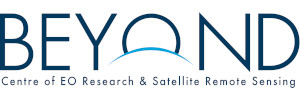EYWA System Winner of the 1st EIC Horizon Prize on Early Warning for Epidemics
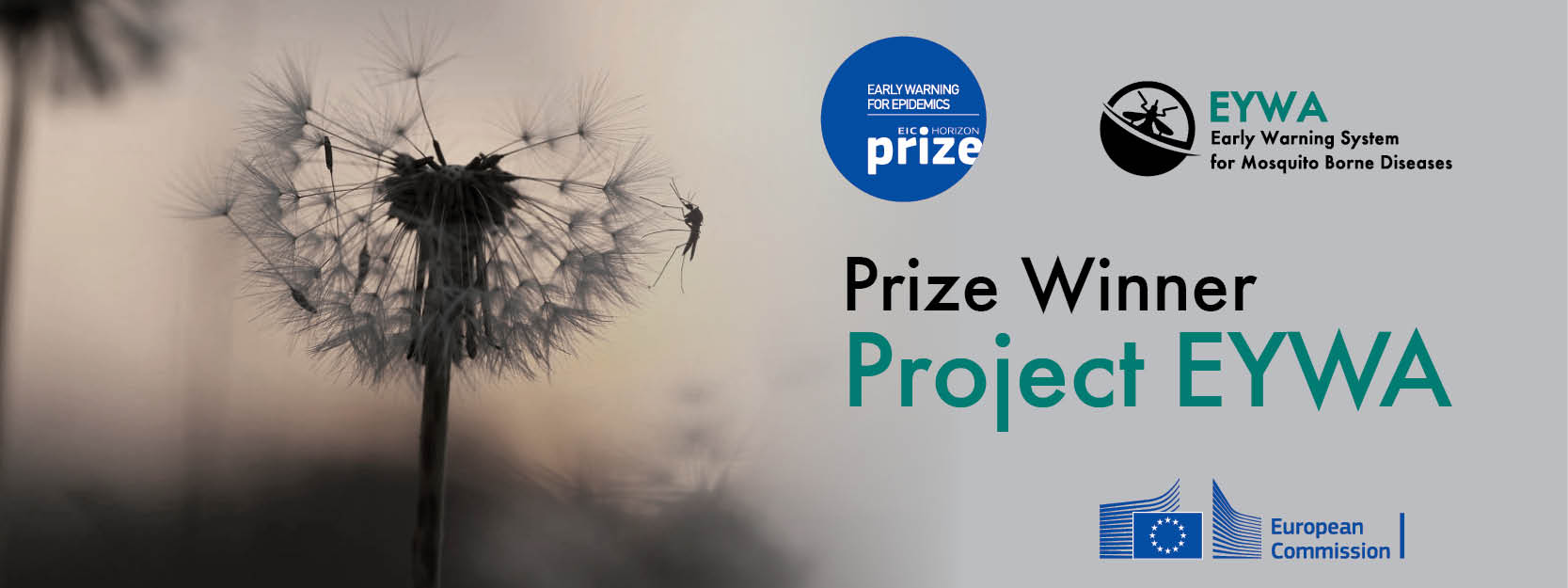
EYWA, Prize Winner Press Release EN
EYWA, Prize Winner Press Release GR
Official Announcement of the EIC
In a nutshell
EYWA (EarlY WArning System for Mosquito borne diseases) is a prototype system addressing the critical public health need for prevention and protection against the Mosquito-Borne Diseases (MBDs) and lies under the umbrella of EuroGEO Action Group "Earth Observation for Epidemics of Vector-borne Diseases" which is led by the National Observatory of Athens / BEYOND Centre of Earth Observation Research and Satellite Remote Sensing.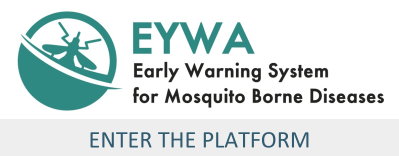
The system combines interdisciplinary scientific fields (entomology, epidemiology, ecology, EO, Big Data Analytics, AI/ML, Ensemble Dynamic/Hybrid vs Data Driven models, Data Fusion and Citizen sciences) towards building new directions in applied research and innovative services for public health, such as outbreak forecasting and decision support modeling for vector control applications and other mitigation actions.
EYWA system is the outcome of the co-development conducted by the BEYOND Centre of EO Research and Satellite Remote Sensing of the Institute for Astronomy, Astrophysics, Space Applications and Remote Sensing (IAASARS) of the National Observatory of Athens, in collaboration with key core partners, the Ecodevelopment S.A. company specialized in mosquito control and data analytics, and the Laboratory of Atmospheric Physics of the University of Patras - Physics Department specialized in mathematical modelling, and along with important European organisations from Italy, France, Germany and Serbia, that serve research purposes, perform mosquito control activities, belong to health and decision making sectors. The partnership scheme is open to include new partners from other European countries. For the time being it is comprising of the following partners:
 Greece
GreeceNational Observatory of Athens (NOA) – BEYOND Centre of EO Research & Satellite Remote Sensing,
Dimitrios Vallianatos (I.D.Com)
University of Patras – Physics Department - Laboratory of Atmospheric Physics (LapUP)
Aristotle University of Thessaloniki
University of Thessaly, Medical School. Laboratory of Hygiene and Epidemiology
 Serbia
SerbiaUniversity of “Novi Sad” Faculty of Agriculture
 Germany
GermanyGerman Mosquito Control Association (KABS)
Bernhard Nocht Institute for Tropical Medicine
 France
France Italy
Italy
Main objectives & outcomes
The main objectives of EYWA lie with the need to offer a scalable, reliable, sustainable and cost-effective Early Warning System (EWS) relying on big Earth Observation (EO) data in conjunction with environmental, climatic and meteorological essential parameters, socioeconomic and population data, ecosystem and morphological related parameters, as well as epidemiological and entomological data to forecast and monitor MBDs.

EYWA’s Data Resources & Acquisitions
Full series of Entomological and Epidemiological Data from the five European countries members of the consortium are integrated so far, including open data introducing environmental essential parameters, time series Meteo, GEOSS portal data e.g. edministrative and socioeconomic data, topographic data, Copernicus Core Service data (C3S, ERA5, IMERG, CLMS, etc.), Copernicus, and Copernicus contributing missions, EO derived proxies from Sentinels and Landsat TM.
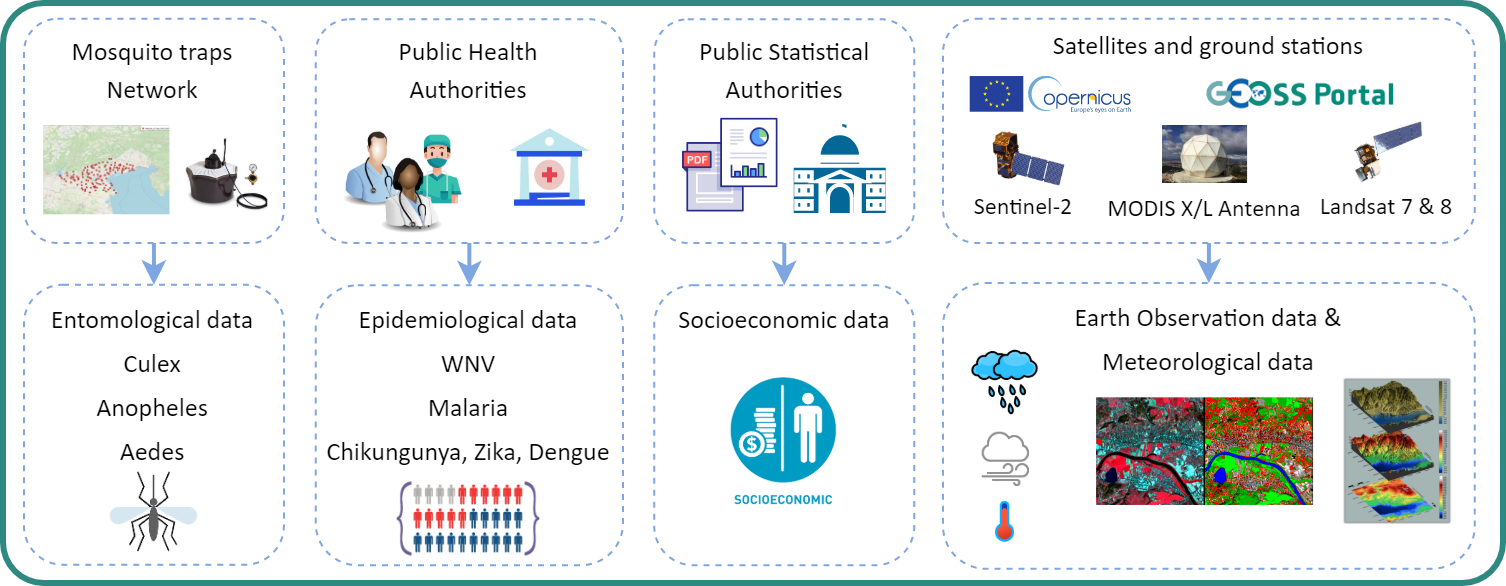
EYWA’s models as per February 2021 - Data Driven & Dynamic modeling
The development of EYWA is a continuous action which its estimated activity duration will carry on for at least the next 5 years, as foreseen in the Partnership Agreement signed by the EYWA Consortium. The synoptic picture of the full set of available operational modules is depicted in the following diagram.
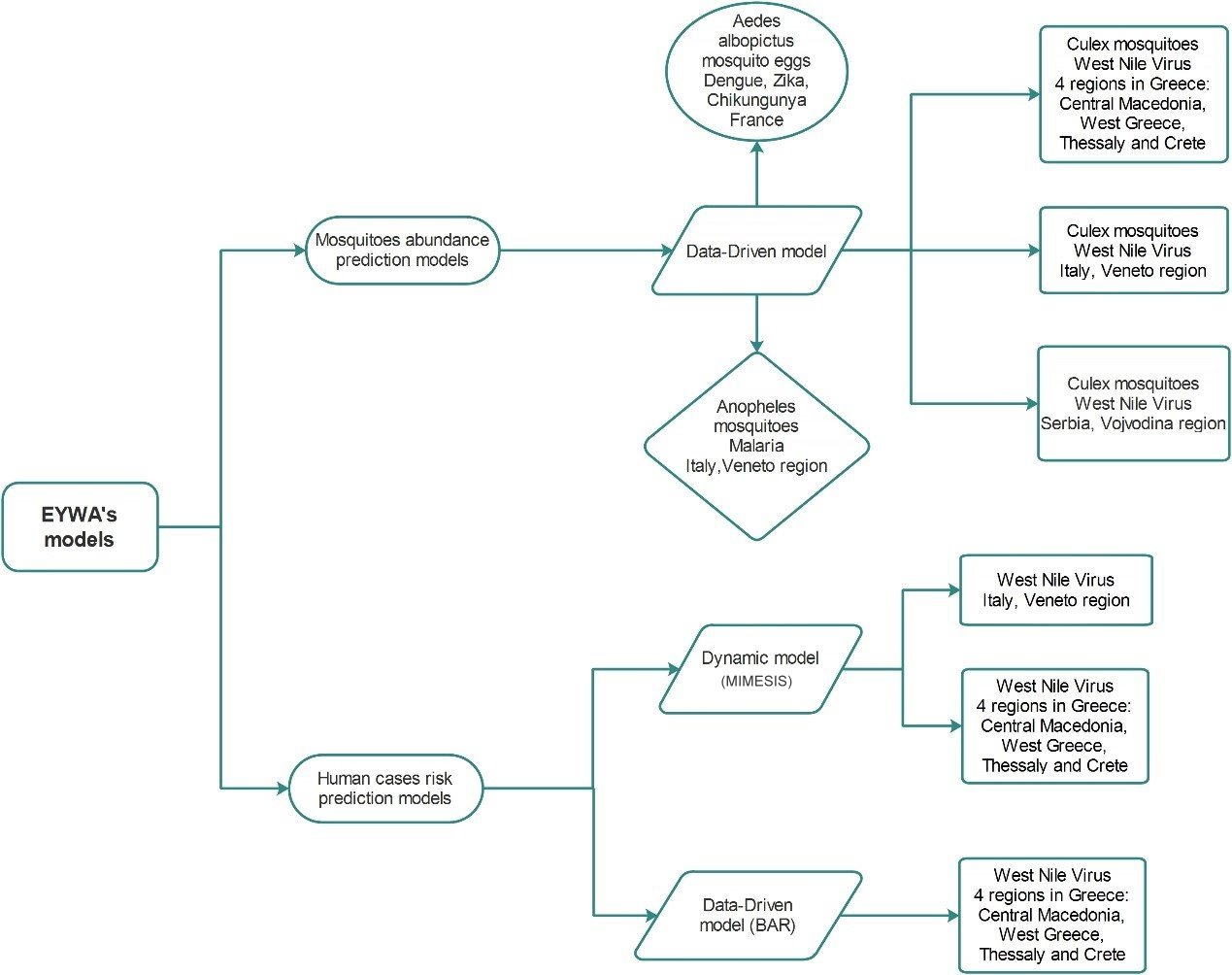
Ultimately:
- EYWA is a suit of validated epidemiological and entomological models either dynamic, hybrid and/or data driven.
- The validated and demonstrated models are considered as operational. Their results are delivered operational for a period of at least six months to receive the feedback from the involved stakeholders for fine tuning.
- EYWA is a fully sustainable action capitalizing on open science, open data, and open innovation principles.
- During the development phase, the models are adapted to site specificities as according to the types of mosquitoes and disease outbreaks.
- In the years to come more countries and diseases will be included in the integrated EYWA system to develop a European/Global Early Warning System.
EYWA Web GIS Platform – Scope and Functionalities
EYWA achieved Technology Readiness Level – TRL 7 (system prototype demonstration in operational environment) in the development of a radically new technique for modelling and predicting mosquito – borne outbreaks across different temporal and spatial scales in Europe. The system reached this milestone and produces results that are published in a Web GIS Platform available to the National Health Organizations and Public Authorities, as well as Research Institutes and Private Companies (end users).
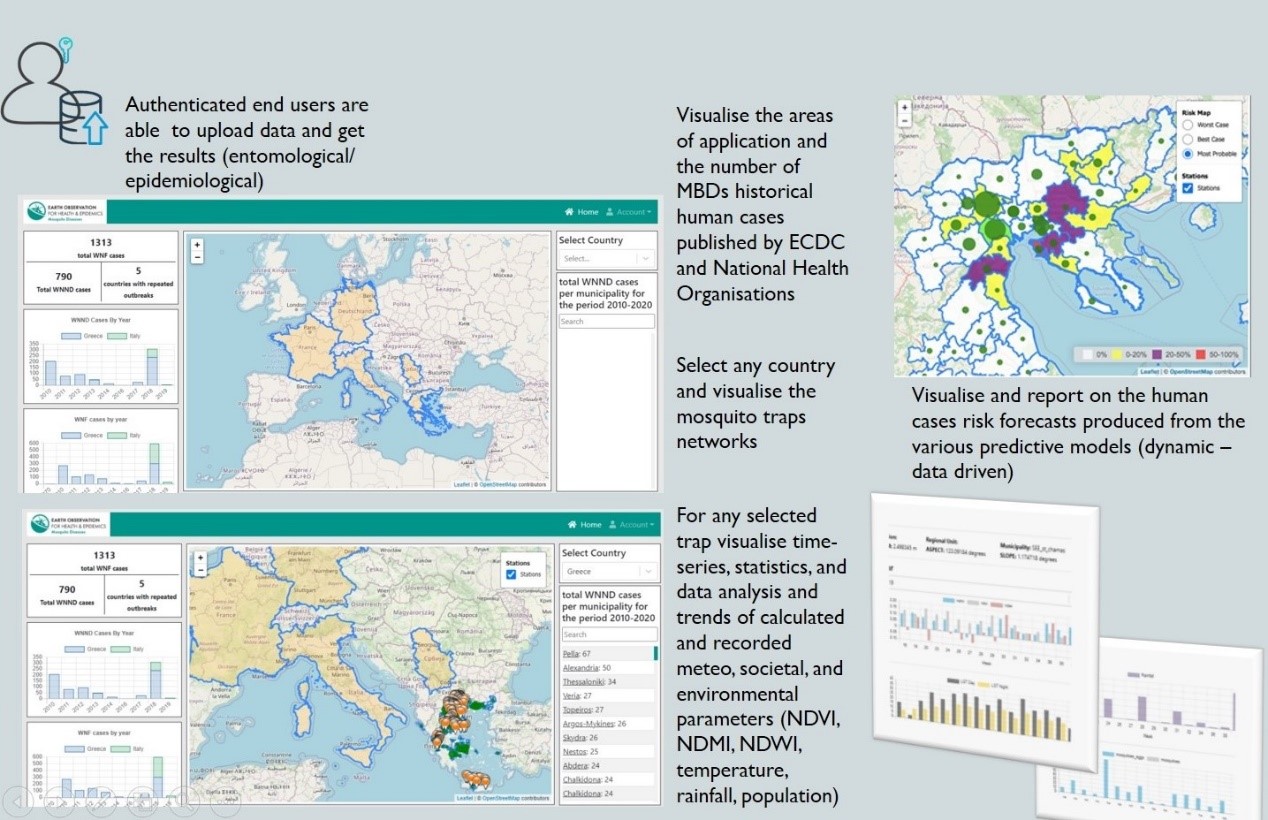
A platform for the benefit of users and society
EYWA GIS Platform is a niche state-of-the-art tool, in the hands of the National Health Organizations and Public Authorities, which publishes knowledge derived from collected data and models in regards to the mosquito population and forecasted risks for mosquito – borne disease outbreaks. Therefore, EYWA is a conducive tool to enhance decision making towards the prevention of outbreaks and mitigation of their impact on local, regional and global scale.
Additionally, the platform is a key lever for organizations involved in mosquito elimination efforts, facilitating the optimal management of the huge combating resources and capacities deployed seasonally (field inspectors, analysts and vehicles, spraying helicopters and drones, thousands of mosquito breeding sites), saving hundreds of millions of Euros for the operations, by indicating targeted actions for implementation.
The platform leveraging European investments and open standards, seamlessly integrating open Data / IP / Hubs / and Portals (e.g. Copernicus Hubs, Copernicus Portals, GEOSS, National Mirror Sites, DIAS, etc.) and delivers information using open OGC standards.
A key tool to the epidemics arsenal
Relying on the advancements in exploiting big EO, and ICT / AI sciences, and leveraging on the use of existing EU investments such as Copernicus, GEO/EuroGEO, and other European infrastructures including existing satellite data hubs and repositories, DIAS platforms, Cloud HPC, Open DataCubes, etc., EYWA becomes a game changer in the domain of epidemics.
In line with the open science and open innovation principles EYWA delivers an innovative, scalable, reliable, transferable, and integrated solution at various spatio-temporal scales (municipality -> regional -> country -> continent level). It consists a fully operational and radically new technique for modelling and predicting mosquito–borne outbreaks across different temporal and spatial scales in Europe with the Technology Readiness Level ranging from 7 – 9 (system prototype demonstration in operational environment).
In the hands of National Health Organizations, Public Authorities and other Users, and through a continuous co-design and co-creation approach, EYWA intends to become a state-of-the-art tool and a European standard in the domain of epidemics for Vector Borne Diseases.
EYWA Publications
![]() West Nile fever upsurge in a Greek regional unit, 2020
West Nile fever upsurge in a Greek regional unit, 2020
![]() MAMOTH: An Earth Observational Data-Driven Model for Mosquitoes Abundance Prediction
MAMOTH: An Earth Observational Data-Driven Model for Mosquitoes Abundance Prediction
EYWA Highlights
EYWA at European Climate and Health Observatory
A case study about EYWA was developed for the European Climate and Health Observatory of the European Environment Agency, entitled “Managing mosquito borne disease through EYWA: an European tool to support public health authorities in preventing epidemics”
Find the full case study here
EYWA at JRC Centre for Advanced Studies (CAS) | Epidemics: Dynamics and Control (EPICO)
JRC Centre for Advanced Studies (CAS) | Epidemics: Dynamics and Control (EPICO)
JRC Centre for Advanced Studies (CAS) brings together Joint Research Centre (JRC) and external scientists and researchers in a single unit, addresses specific cross disciplinary research topics with a longer term perspective on EU policy, promotes and develops research collaboration with top universities and institutes worldwide.
Epidemics: Dynamics and Control (EPICO) focuses on respiratory infectious diseases with pandemic potential (e.g. influenza, corona viruses) and emerging vector-borne diseases (e.g., Zika, Chikungunya, Dengue, West Nile virus) that pose a major global health threat, aiming to develop a framework based on mathematical and statistical methods and on data derived from routine and on modern space surveillance systems. It studies aspects of spatiotemporal dynamics, seasonality, the One-Health approach, transmission modes, waning immunity, the immuno-epidemiology of the disease, early warning, and the assessment of pharmaceutical interventions that may inform public health decision makers.
EYWA Activity
Dr Kontoes from BEYOND Centre of Earth Observation Research and Satellite Remote Sensing of the National Observatory of Athens, had the opportunity to present, on the 14th of October 2021, the EarlY WArning System for Mosquito-Borne Diseases (EYWA), a game changer in the domain of epidemics that was developed under the flag of EuroGEO Action Group, to the JRC’s Centre for Advanced Studies (CAS) in the framework of Epidemics: Dynamics and Control (EPICO) project.

More info:
CAS10_EPICO_KickOff_Meeting_Abstacts , CAS10_EPICO_KickOff_Meeting_final AC
EYWA at GEO HEALTH Community of Practice
GEO HEALTH Community of Practice
The GEO Health Community of Practice is a global network of governments, organizations, and observers. It seeks to use environmental observations to improve health decision-making at the international, regional, country, and district levels.
EYWA Activity
The Group on Earth Observations (GEO) Health Community of Practice was pleased to host the community teleconference on Tuesday, June 15th from 8:30AM-10AM EDT (GMT-4). This teleconference focused on infectious disease research applications. Haris Kontoes (Research Director, National Observatory of Athens) & Katerina Kyratzi (EYWA Project Manager, National Observatory of Athens) provided an overview of the Early Warning System for Mosquito borne diseases (EYWA) of the EuroGEO Action Group’s Earth Observation for Epidemics of Vector-borne Diseases (National Observatory of Athens / BEYOND Centre of Earth Observation Research and Satellite Remote Sensing).
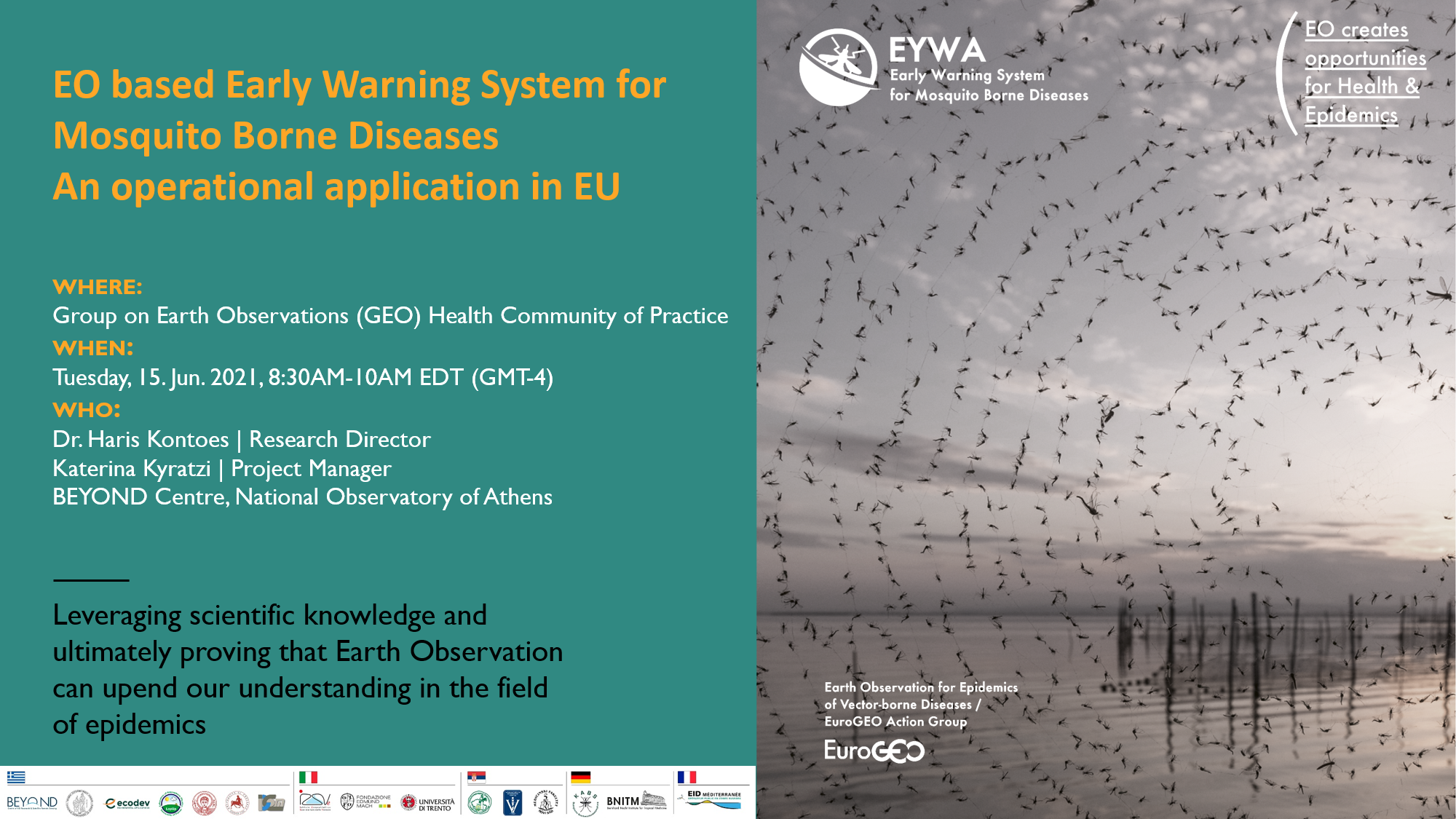
Download the full presentation here
EYWA Outreach | 1st EIC Horizon Prize on Early Warning for Epidemics
Articles & Videos in local & international media
https://earthobservations.org/geo_blog_obs.php?id=545
https://www.amna.gr/macedonia/article/616376/Stin-EYWA--to-brabeio-tou-EIC-tis-Europaikis-Epitropis
https://www.kathimerini.gr/society/561675325/oplo-kata-palaion-apeilon/
https://greenbusiness.gr/news/5795/5795/
YouTube
https://www.youtube.com/watch?v=IDYv97cN3WU
https://www.youtube.com/watch?v=NbfcTJbE1s0
https://www.youtube.com/watch?v=IDYv97cN3WU
EYWA Outreach
Presentations
2023
Where: Group on Earth Observations (GEO) Health Community of Practice
Link: http://www.geohealthcop.org/workshops/2023/6/9/telecon-eurogeo
Presentation Title: “EYWA: An established Early Warning System to Address World Wide Epidemics Crisis caused by the Mosquito Borne Diseases in Operational Context”
When: 09/06/2023
Where: Eurisy Members’ Corner | Virtual Webinar
Presentation Title: “Unveiling the EYWA System, from the challenge…to the solution!”
When: 26/05/2023
2022
Where: GEO WEEK 2022
Link: https://www.earthobservations.org/geoweek2022.php
Presentation Title: “EYWA: An established Early Warning System to Address World Wide Epidemics Crisis caused by the Mosquito Borne Diseases in Operational Context”
When: 01/11/2021
Where: ITU /WMO/UNEP Workshop on Artificial Intelligence for Natural Disaster Management
Link: https://www.itu.int/en/ITU-T/Workshops-and-Seminars/2022/1024/Pages/default.aspx
Presentation Title: “EYWA: An established Early Warning System to Address World Wide Epidemics Crisis caused by the Mosquito Borne Diseases”
When: 24/10/2022
Where: EU Global Action on Space: Current and future opportunities for EU-Africa cooperation in the Space domain
Presentation Title: “EYWA: A key tool to the epidemics arsenal”
When: 06/09/2022
Where: Emerging Earth Observation technologies in support of Health surveillance: From scientific data to knowledge, e-shape Webinar
Link: https://e-shape.eu/images/webinars/SC2_agenda_F.pdf
Presentation Title: “EYWA: A key tool to the epidemics arsenal”
When: 08/06/2022
Where: Earth Observation solutions for sustainable development: Hands-on e-shape services
Presentation Title: “EYWA: A key tool to the epidemics arsenal”
When: 07/06/2022
Where: United Nations/Ghana/PSIPW - 5th International conference on the use of space technology for water resources management
Link: https://www.unoosa.org/oosa/en/ourwork/psa/schedule/2022/un-Ghana-water.html
Presentation: “EYWA: A key tool to the epidemics arsenal”
When: 11/05/2022
Where: Πανελλήνιο Συνέδριο Δημόσιας Υγείας 2022
Link: https://www.events-free-spirit.gr/dimosias-ygeias-2022
Presentation Title: “Πρόγραμμα Ερευνώ-Καινοτομώ "ΕΜΠΡΟΣ": Ολοκληρωμένο σύστημα πρόβλεψης κρουσμάτων WNV. Ερευνητική Δράση που υποστηρίζει την δημιουργία καινοτομίας του επιχειρησιακού προγράμματος EYWA για την αντιμετώπιση νοσημάτων από κουνούπια”
When: 01/03/2022
2021
Where: Joint Research Center – European Commission
Link:
Presentation Title: “EYWA: A key tool to the epidemics arsenal”
When: December 2021
Where: EO4HEALTH Community of Practice
Link:
Presentation Title: “EO based Early Warning System for Mosquito Borne Diseases An operational application in EU”
When: June 2021
Where: EO4GEO
Link:
Presentation Title: “EO based Early Warning System for Mosquito-Borne Diseases. An operational application in EU”
When: June 2021
Where: EXCELSIOR 2021
Link:
Presentation Title: “EYWA: EO based Early Warning System for Mosquito Borne Diseases An operational application in EU”
When: June 2021
EYWA at WHO podcast
https://eyeonyellowfever.libsyn.com/space-a-new-frontier-in-public-health
Links
22/05/2021 - Υψώνεται «ασπίδα» προστασίας κατά του ιού του Δυτικού Νείλου και των κουνουπιών
Click here for EN translation
![]() 19/05/2021 - Σύστημα που βασίζεται σε μαθηματικά μοντέλα προβλέπει την εκδήλωση του ιού του Δυτικού Νείλου
19/05/2021 - Σύστημα που βασίζεται σε μαθηματικά μοντέλα προβλέπει την εκδήλωση του ιού του Δυτικού Νείλου
![]() 18/03/2021 - Σύστημα προειδοποίησης για τον ιό του Δυτικού Νείλου
18/03/2021 - Σύστημα προειδοποίησης για τον ιό του Δυτικού Νείλου
![]() 09/03/2021 - Το Σύστημα Έγκαιρης Ειδοποίησης για τον ιό του Δυτικού Νείλου
09/03/2021 - Το Σύστημα Έγκαιρης Ειδοποίησης για τον ιό του Δυτικού Νείλου
YouTube
![]() 18/03/2021 - Σύστημα προειδοποίησης για τον ιό του Δυτικού Νείλου
18/03/2021 - Σύστημα προειδοποίησης για τον ιό του Δυτικού Νείλου
![]() 27/07/2020 - Η Τεχνητή Νοημοσύνη φύλακας-άγγελος από τον ιό του Δυτικού Νείλου
27/07/2020 - Η Τεχνητή Νοημοσύνη φύλακας-άγγελος από τον ιό του Δυτικού Νείλου
Scientific Publications
2021
MAMOTH: An Earth Observational Data-Driven Model for Mosquitoes Abundance Prediction https://doi.org/10.3390/rs13132557
2019
Satellite Earth Observation Data in Epidemiological Modeling of Malaria, Dengue and West Nile Virus: A Scoping Review, https://doi.org/10.3390/rs11161862
